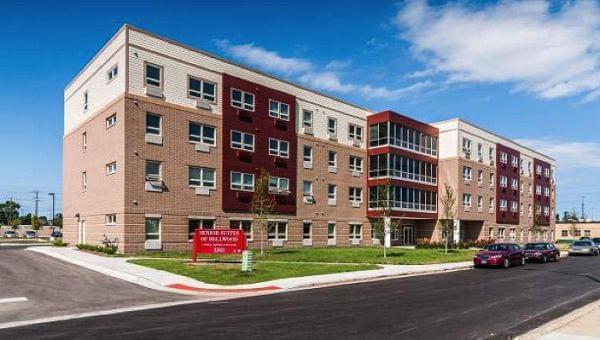$200 Million From Capital Plan To Go For Affordable Housing Projects

Illinois' Housing Development Authority will get $200 million from the latest infrastructure plan to fund some of the state's housing needs. The agency is tasked with helping people buy their own homes or afford rent. Illinois Housing Development Authority
Illinois’ new infrastructure plan has money set aside to help residents secure affordable housing across the state. This is the first capital plan in 10 years.
Illinois’ Housing Development Authority will get $200 million from the latest infrastructure plan to fund some of the state’s housing needs. The agency is tasked with helping people buy their own homes or afford rent.
Bob Palmer, policy director for Housing Action Illinois said the money is in addition to what the federal government already gives the state and works in combination with other initiatives to help reduce homelessness.
“We need public resources — both through creating affordable housing units but also helping people pay the rent through rental subsidies.”
Palmer said the state’s recent minimum wage increase to $15 an hour will help extremely low-income households and people with a history of homelessness afford rent. But the state will not reach that minimum wage until 2025. And as that happens, rental housing costs will continue to increase, Palmer said, so money will always be needed.
The capital plan does not give specifics on how the money should be spent. The Illinois Housing Development Authority will have final say.
Palmer said Housing Action Illinois and other groups will try to push for some of the money to be spent on rental housing units. If all of the $200 million is used for that purpose, up to 2,000 units could be funded.
The affordable housing funding from 2009's capital plan went to supportive housing and homeownership projects.
Palmer said it could be a while — maybe several years — before the money starts coming in. The funding is slated to come from taxing legal sports betting and the state’s six new casinos, which will also help maintain state-owned buildings, like universities and prisons.
Links
- A Fight Over Fair Housing Regulations
- Champaign To Continue To Let Landlords Deny Housing To People With Certain Criminal Records
- Affordable Housing Advocates Want $1bn From Capital Plan
- New Illinois Tax Credit Could Boost Local Housing, Economies, But There’s a Catch
- Housing Authority of Champaign Worries Federal Shutdown Could Impact Affordable Housing Programs
- Can This Tiny House Solve Senior Housing Shortage?
- Public Housing In Southern Illinois; State Lottery Prizes; Distracted Driving; NWS Wildfire Update

